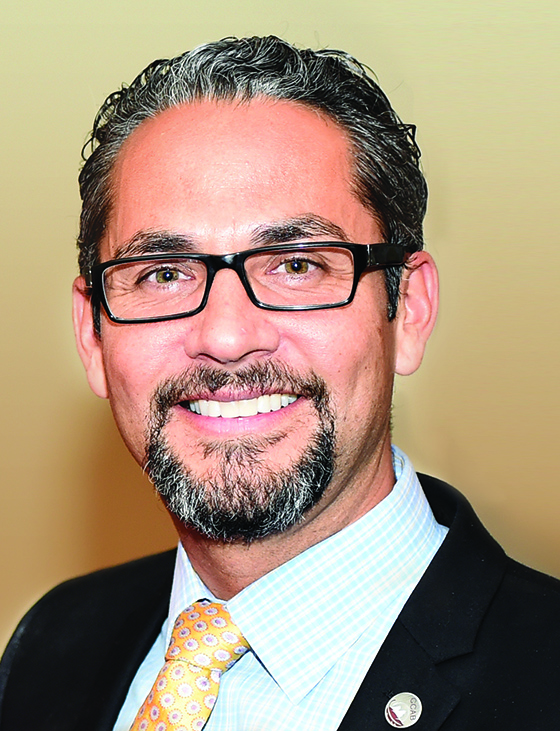Dwight Newman, Professor, University of Saskatchewan, Canada Research Chair in Indigenous Rights in Constitutional and International Law http://www.usask.ca/icngd/profiles/dwight-newman/index.php
Dwight Newman is Professor of Law & Canada Research Chair in Indigenous Rights in Constitutional and International Law at the University of Saskatchewan. He researches on constitutional law, international law, and Indigenous rights, and has published books on such topics as the duty to consult doctrine and natural resource jurisdiction. Some of his current and ongoing work is on consultation with Northern Aboriginal communities, on Indigenous participation in natural resource development, and on legal frameworks related to Arctic energy issues, to Arctic maritime shipping issues, and to sacred natural sites (SNS) in Northern and Arctic regions. His most recent publications include Law of the Canadian Constitution and Natural Resource Jurisdiction in Canada.
Tom Molloy, former Chief Negotiator for the Government of Canada in the Nunavut Land Claims Agreement and for the Nisga’a Final Agreement http://tommolloy.ca/
Tom is a respected negotiator, strategic advisor on indigenous issues, and author. In the past three decades, he has been instrumental in concluding numerous agreements with Indigenous people across the country. He was the Chief Negotiator for the Government of Canada in the negotiations with the Inuit of Nunavut. The Agreement led to the creation of the Territory of Nunavut. Tom represented Canada during the implementation of the British Columbia Treaty Commission process. He also negotiated the Nisga’a Final Agreement, and the Inuit of Northern Quebec’s offshore claim in Nunavut and Newfoundland and Labrador. He negotiated treaties with Lheidli T’enneh (not ratified) and with the Tla’amin First Nation, both in British Columbia. Tom has helped establish treaty processes in Nova Scotia and Quebec. He has been involved in negotiations with First Nations and Inuit in British Columbia, Ontario, Quebec, Manitoba, Nova Scotia, Prince Edward Island, New Brunswick, Saskatchewan, Newfoundland, the Yukon, the Northwest Territories and Nunavut.

Jean Paul Gladu, President of the Canadian Council for Aboriginal Business https://www.ccab.com/
Jean Paul (JP) Gladu is currently the President and CEO of the Canadian Council for Aboriginal Business (CCAB) based in Toronto. Anishinaabe from Thunder Bay JP is a member of Bingwi Neyaashi Anishinaabek located on the eastern shores of Lake Nipigon, Ontario. JP completed a forestry technician diploma in 1993, obtained an undergraduate degree in forestry from Northern Arizona University in 2000 and holds an Executive MBA from Queens University. JP has over two decades of experience in the natural resource sector. His career path includes work with Aboriginal communities and organizations, environmental non-government organizations, industry and governments from across Canada. In JP’s current capacity at CCAB, he speaks extensively not only across Canada but internationally as he shares the challenges and successes of Aboriginal business in Canada today. In 2014 he addressed delegates at the World Indigenous Business Forum in Guatemala; in 2015k, he presented at both the Sodexo Quality of Life Conference and the Corporate Leadership Indigenous Peoples’ Rights Building a Community of Practice Conference in New York City. Currently, JP serves on the Colleges and Institutes Canada (previously ACCC), the Northern Policy Institute, Canadian Foundation for Economic Education, is an advisory member to the Canadian Association of Petroleum Producers, a committee member to the Provincial Forest Policy Committee and was recently appointed to Ontario Power Generation’s Board of Directors. In 2014, he was identified as a Diversity 50 Board Ready Candidate from the Canadian Board Diversity Council and a recipient of the Community Service Award – Transformation Awards from Diversity Magazine. As a father to his young daughter Chloe, along with a passion for his community, his culture and traditions; JP brings the past, present and future to the table, moving non-Aboriginal and Aboriginal business toward sustainable partnerships and shared economic prosperity.
Dr. Catherine Howlett, Griffith School Of Environment, https://www.griffith.edu.au/environment-planning-architecture/griffith-school-environment/staff/catherine-howlett
Dr. Howlett research focuses on the political economy of mineral and energy development on Indigenous lands in Australia. She is the author of The Politics of Mining on Indigenous Lands: The Story of Century Zinc Mine (2010) and numerous journal articles. Dr Howlett has established research relationships with many Indigenous communities throughout Australia and has published widely on Indigenization of higher education curricula. She is committed to engaged and ethical research with Indigenous peoples and is the Indigenous research specialist on the Commonwealth Scientific International Research Organization (CSIRO) Social Science Research Ethics Committee.
Aili Keskitalo, The President of the Sámi Parliament of Norway
Aili Keskitalo is the president of and elected representative to the Norwegian Sami Parliament
for the term 2013-2017. Keskitalo represents Norske Samers Riksforbund (NSR) at the Sámi Parliament since 2005. She was elected the first female president in 2005, and has been the leader of NSR since
2008. Keskitalo was born october 29 1968 and originates from Kautokeino. She is married and has
three children, Keskitalo has a Masters Degree in Public Administration from Copenhagen Business
School.
Silje Karine Muotka, member of the Governing council of the Sámi Parliament
Muotka is responsible for the policy areas of education, fishery, reindeer herding, industry, and oil & gas and mineral activities.
Muotka represents Norske Samers Riksforbund at the Sámi Parliament since 2009.
Monica Tennberg, research professor at the Arctic Centre, University of Lapland, Finland.
Professor Tennberg leads the multidisciplinary sustainable development research group. She is also professor II at the Sami Centre of the Norwegian Arctic University. Her current research focuses on questions of adaptation, agency and responsibility in the face of Arctic environmental and socio-economic changes. She is also a co-chair to the Barents regional integrated assessment report which is part of the Arctic Council/AMAP project “Adaptation actions for a changing Arctic” (AACA).
Hugh Braker, Vice-President, First Nations Fisheries Council of British Columbia.
Mr. Braker will give an overview of Canada's unique legal recognition of the rights of aboriginal people and how those rights are given effect by the Courts. He will examine the legal requirements for consultation and accommodation. Finally, he will examine current practices in the area of aquaculture and reference successes, challenges and failures.
Kamilla H. Kolshus, Head of secretariat, Norway’s OECD National Contact Point for Responsible Business Conduct.

